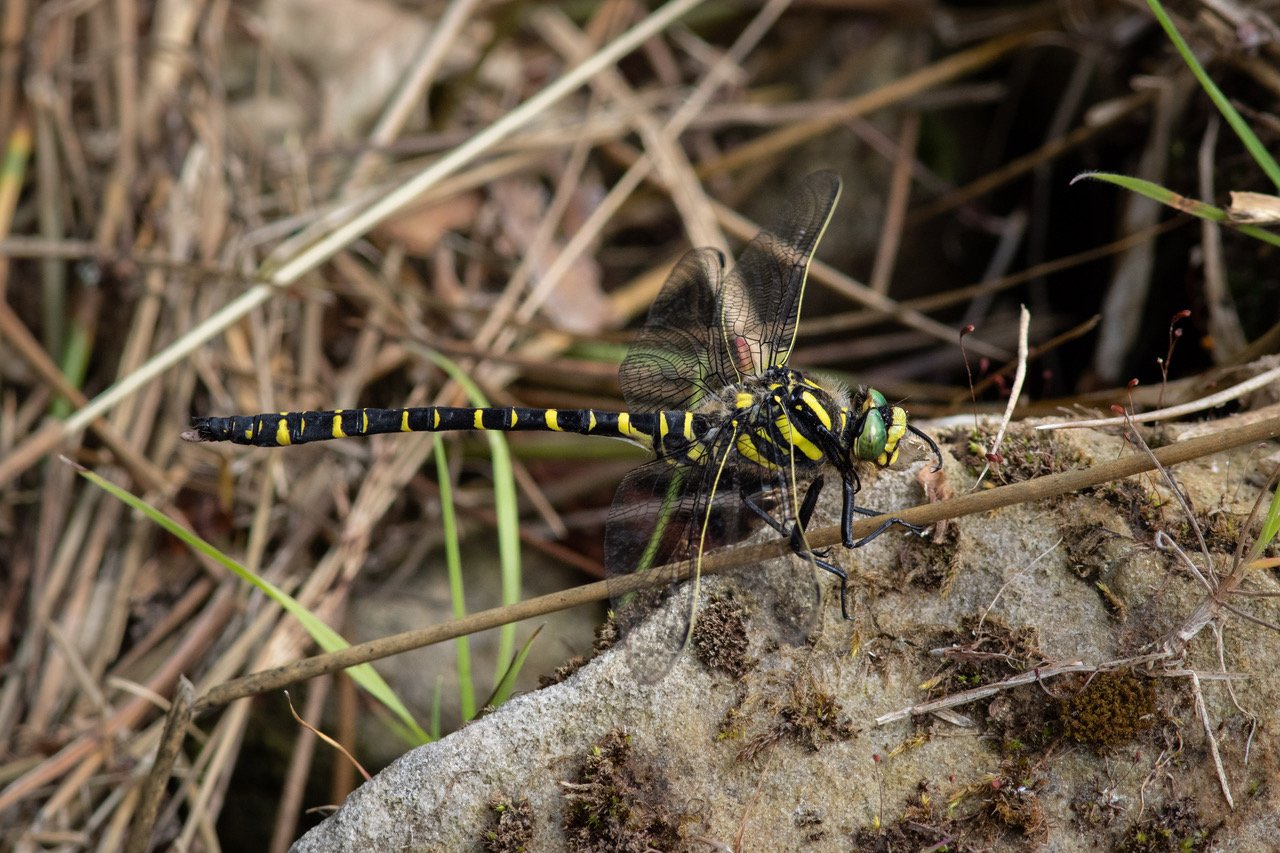Damsels & Dragons Update
Golden-ringed dragonfly at Hepple © Chris Wren
The wetland restoration and creation work we began at Hepple in 2021 is already benefiting a wealth of species, including damselflies and dragonflies which emerged in abundance this summer.
One of the ponds & Longhorn cattle at Hepple © Hepple Estate
In 2022, with the help of dedicated and knowledgeable volunteer Chris Wren, we recorded a total of 10 species, including the spectacular Golden-ringed dragonfly, striking Azure damselfly, Large red damselfly and the dainty Emerald damselfly. This summer we were delighted to add two more species to our tally: the Four-Spotted Chaser and one of Europe’s largest dragonflies, the Emperor dragonfly.
Volunteer Chris Wren surveying at Hepple © Hepple Estate
Golden-ringed dragonfly at Hepple. The UK’s longest dragonfly species. © Chris Wren
Azure damselflies mating at Hepple © Chris Wren
Large red damselfly at Hepple © Chris Wren
Emerald damselfly at Hepple © Chris Wren
Four-spotted chaser at Hepple © Chris Wren
Emperor dragonfly laying eggs in pond at Hepple © Chris Wren
With Chris’ help and expertise we have recorded a total of 12 species of dragonflies and damselflies at Hepple so far.
We expect to find more species of dragonflies and other insects at Hepple in the future as our ponds mature and species currently found further south move north with climate change. The British Dragonfly Society have produced a fascinating report about this. https://british-dragonflies.org.uk/recording/state-of-dragonflies-2021/
Our records are shared with the British Dragonfly Society, Natural History Society of Northumbria and our regional Environmental Information Records Centre. We are contributing to regional and national datasets providing vital information on the distribution and abundance of species and how they are changing.
Huge thanks to Chris for his time and photos.
Mary









